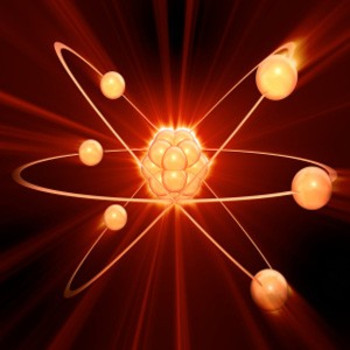What eventually happens to radioactive isotopes?
1 Answer
They will decay to another nuclide.
Explanation:
First of all it is important to know the difference between isotope and nuclide, for these terms are often confused:
- isotope: a variety of an element with the same number of protons and therefore the same chemical properties. Isotopes differ in the number of neutrons or energy in the nucleus
- nuclide: a more general term that refers to varieties of elements that are not necessarily isotopes.
Radioactive decay usually changes the proton number in the nucleus and therefore one decay of 'isotopes' is not the correct term, it is decay of nuclides.
Unless you talk about gamma decay (
Explanation with an example
Technetium-99m (metastable) decays to Technetium-99, this is the same nuclide but can be considered an
When this
So it decays to Ruthenium which is a different

